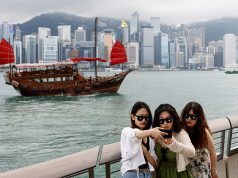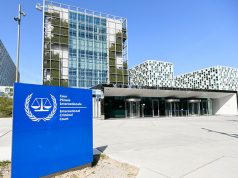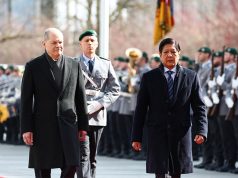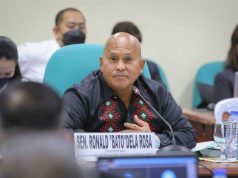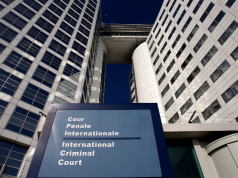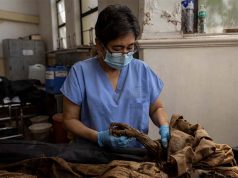Former Foreign Affairs Secretary Albert Del Rosario was denied entry at the Hong Kong International Airport on Friday, a month after former Ombudsman Conchita Carpio Morales initially suffered the same ordeal.
He arrived in the special administrative region of China on June 21, 7:40 a.m. but was held at the airport for more than five hours due to a vague “immigration reason.”
Del Rosario was supposed to attend a shareholders’ meeting in Hong Kong as a non-executive director of First Pacific Company Ltd., a Hong Kong-based investment management and holding firm where he is a major shareholder.
He was instead questioned by airport authorities after his arrival.
His lawyer, Anne Marie Corominas, said Del Rosario has a valid diplomatic passport the Philippine government gave him as a former Foreign Affairs chief.
He is authorized to travel on a diplomatic passport, Corominas explained.
Del Rosario said the Hong Kong consulate had written a letter to the Hong Kong authorities informing them of his arrival using his diplomatic passport but “apparently nobody knew where that letter was or had they received it.”
Corominas added that the denial was a “violation of diplomatic relations,” particularly the Vienna Convention on Diplomatic Relations, an international treaty that both China and the Philippines have ratified before.
“We weren’t able to get specific reasons, only vague immigration reason,” Corominas revealed in an interview.
Del Rosario described it as a case of “harassment” by the semiautonomous Chinese territory.
Presidential spokesperson Salvador Panelo, meanwhile, questioned the former top diplomat’s need to travel to Hong Kong and claimed Del Rosario went to Hong Kong in a manner that is “deliberate” to make it a “forum for his advocacy.”
Justice Secretary Menardo Guevarra similarly questioned Del Rosario’s actions and said the latter should’ve learned from Morales’ experience before.
Nevertheless, Guevarra said he has ordered the Department of Foreign Affairs to look into the situation and extend “whatever assistance” to Del Rosario.
The incident prompted Filipinos to recall how the country’s former chief graft-buster was temporarily denied entrance to Hong Kong as well.
Oops, they did it again! https://t.co/NO4dmU2n3Z
— Theodore Te (@TedTe) June 21, 2019
So aside from former Ombudsman Conchita Carpio-Morales, Former DFA Secretary Albert Del Rosario was also barred entry in Hong Kong.
I'm sure ang dahilan daw ay "Security Threat" daw siya.
Di na nakakagulat.
— ikingskie™ (@ikingskie) June 21, 2019
The case of Morales
Last May, former Ombudsman Conchita Carpio Morales was also temporarily denied entrance to Hong Kong by immigration officials without being given an explanation.
It was presumed that the initiative was related to her filing a communication to the International Criminal Court against Chinese President Xi Jinping for alleged crimes against humanity in the West Philippine Sea.
Morales was only supposed to go to Hong Kong for a vacation with her family at that time.
However, airport authorities refused to let her go in the immigration, claiming that she was a “security threat.”
Similar to Del Rosario, she was held at the Hong Kong International Airport for hours.
She was eventually permitted to enter the country but the former Ombudsman decided to go back to the Philippines instead.
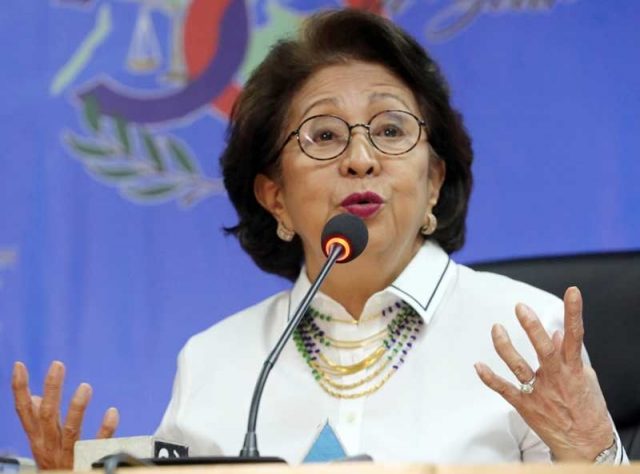
Both Morales and Del Rosario lodged a complaint to the International last March over China’s continuous encroachment of areas within Philippine maritime territory.
They called it a “most massive, near permanent and devastating destruction of the environment in humanity’s history” that has significantly affected “myriad groups of vulnerable fishermen.”
China has been aggressively building artificial islands and beefing up its maritime militia in the resource-rich South China Sea which is an important trade route.
Earlier this month, a Chinese fishing vessel rammed a Filipino boat that endangered the lives of 22 crewmen.
Passport matters
Corominas claimed that Hong Kong’s barring of Del Rosario’s entry was a graver offense compared to Morales since the former top envoy is a diplomatic passport holder.
“He is on a diplomatic passport, this shouldn’t happen. It should have afforded him some sort of immunity,” Corominas said in an interview.
“This is not the way to treat the Philippines, which is supposed to be in friendly relations with Hong Kong. It’s unacceptable,” she added.
Morales is a regular passport holder compared to Del Rosario, who has additional privileges.
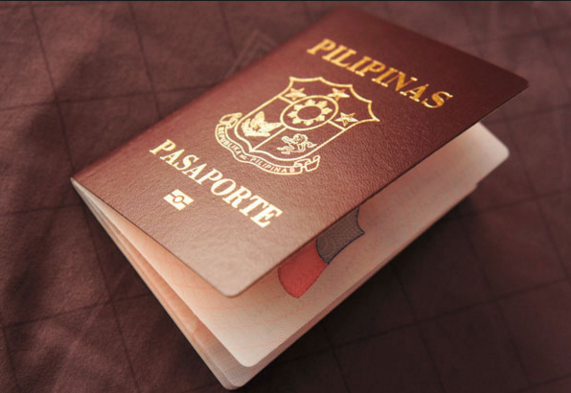
A Philippine diplomatic passport is issued to high-ranking government officials in instances of official international travel.
Corominas stated that Del Rosario’s diplomatic passport “should have avoided problems” that he encountered at the immigration and cited an international treaty.
The Vienna Convention on Diplomatic Relations allows diplomatic agents and their families immunity from criminal, civil and administrative prosecution.
Part of Article 31 of the treaty states:
“A diplomatic agent shall enjoy immunity from the criminal jurisdiction of the receiving State. He shall also enjoy immunity from its civil and administrative jurisdiction.”
However, he is not immune if he acted in relation to “any professional or commercial activity” that is considered “outside his official functions.”
The international treaty dictates the framework for diplomatic relations between countries and specifies privileges of diplomats to perform their respective functions without being harassed or subjected into intimidation by the receiving country, among others.
It has been ratified by the Philippines in November 1972 and China in September 1997.





